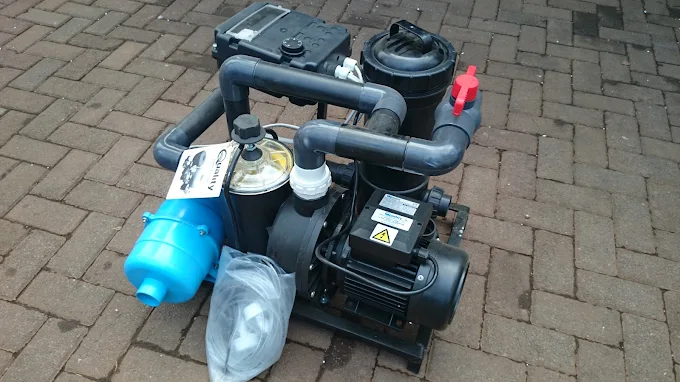
Introduction
In today’s fast-paced world, staying updated with current affairs is crucial not only for competitive exams but also for general awareness and informed decision-making. At HAREESH THE BEST ACADEMY, we understand how vital it is to have a solid strategy for mastering current affairs. Preparing for current affairs can sometimes feel overwhelming due to the sheer volume of information and the rapid flow of news. However, a structured approach can turn this challenge into a rewarding experience.
In this blog post, I will share my personal strategy for preparing current affairs effectively—something that has helped many aspirants at HAREESH THE BEST ACADEMY crack their exams confidently.
1. Understand the Syllabus and Exam Pattern
Before diving into preparation, the first step is to thoroughly understand the syllabus and exam pattern of the competitive exam you are targeting. Different exams emphasize different types of current affairs — some focus on national news, others on international events, and some may include economic, scientific, or sports updates.
At HAREESH THE BEST ACADEMY, we emphasize understanding the exam requirements clearly to avoid wasting time on irrelevant topics. Knowing what to focus on helps streamline your preparation.
2. Daily Habit of Reading Newspapers and Reliable Sources
Current affairs preparation is a continuous process, and consistency is key. Every day, I made it a habit to read newspapers and reliable news portals. Some of my go-to sources included:
- The Hindu
- Indian Express
- BBC News
- Press Information Bureau (PIB) for official government updates
I focused on editorial summaries, national news, international relations, economic developments, science and technology, sports, and awards.
The key was not just to read but to understand the context and significance of each news item. I used to underline important facts and make margin notes for quick revision later.
3. Use Monthly Current Affairs Compilations
Apart from daily reading, I relied heavily on monthly current affairs compilations prepared by HAREESH THE BEST ACADEMY. These compilations summarize the most important news in an organized format, covering all major events of the month.
These compilations saved me valuable time, helped reinforce what I had already read daily, and ensured that I didn’t miss any critical updates. Revising these notes multiple times before the exam was a vital part of my strategy.
4. Create Short Notes and Mind Maps
Taking concise notes is a powerful way to retain information. I maintained a dedicated notebook for current affairs, where I wrote down important facts, dates, names, and events.
In addition, I created mind maps for complex topics like government schemes, international summits, and economic policies. This visual representation made revision easier and helped me remember interconnected facts.
At HAREESH THE BEST ACADEMY, we encourage students to adopt this active learning method as it enhances memory retention.
5. Practice Quizzes and Previous Year Questions
Theory alone is not enough. Testing your knowledge regularly through quizzes and solving previous years’ exam questions is critical. I took weekly quizzes available at HAREESH THE BEST ACADEMY, which helped me identify weak areas and improve my accuracy and speed.
Going through past exam questions also familiarized me with the exam pattern and the kind of current affairs questions that are frequently asked.
6. Follow Relevant Government Websites and Reports
For authentic information, I regularly visited official websites like:
- PIB (Press Information Bureau)
- NITI Aayog
- Economic Survey
- Union Ministry portals
These sources provide verified data about government initiatives, reports, and policies which are often asked in exams.
7. Join Discussion Groups and Online Forums
Interacting with peers helps in exchanging ideas and gaining different perspectives. I was part of online current affairs discussion groups, including some facilitated by HAREESH THE BEST ACADEMY. Engaging in discussions clarified doubts and reinforced learning.
8. Revision Is Key – Multiple Times Before Exam
I dedicated the last month before exams solely to revision. I revised my notes, went through monthly compilations, and attempted mock tests based on current affairs.
Multiple revisions ensure that the information stays fresh and helps build confidence.
9. Stay Positive and Manage Time Well
Finally, I managed my time by allotting specific hours daily for current affairs and balanced it with other subjects. Avoiding last-minute cramming reduced stress.
Staying motivated and positive throughout the journey made a significant difference.
Conclusion
This article in the earthlyblogging must have given you clear idea about Preparing for current affairs requires discipline, smart strategies, and reliable resources. At HAREESH THE BEST ACADEMY, we provide students with the tools, materials, and guidance needed to excel in this area.
To summarize my strategy:
- Understand the syllabus and exam pattern
- Read newspapers and authentic sources daily
- Use monthly compilations for revision
- Make concise notes and mind maps
- Practice quizzes and previous year questions
- Follow government websites for authentic information
- Participate in discussions and online forums
- Revise multiple times before exams
- Manage time and maintain a positive mindset
Implementing these strategies can transform your current affairs preparation from a daunting task to an achievable goal. If you’re preparing for competitive exams, join HAREESH THE BEST ACADEMY and let us guide you to success!




